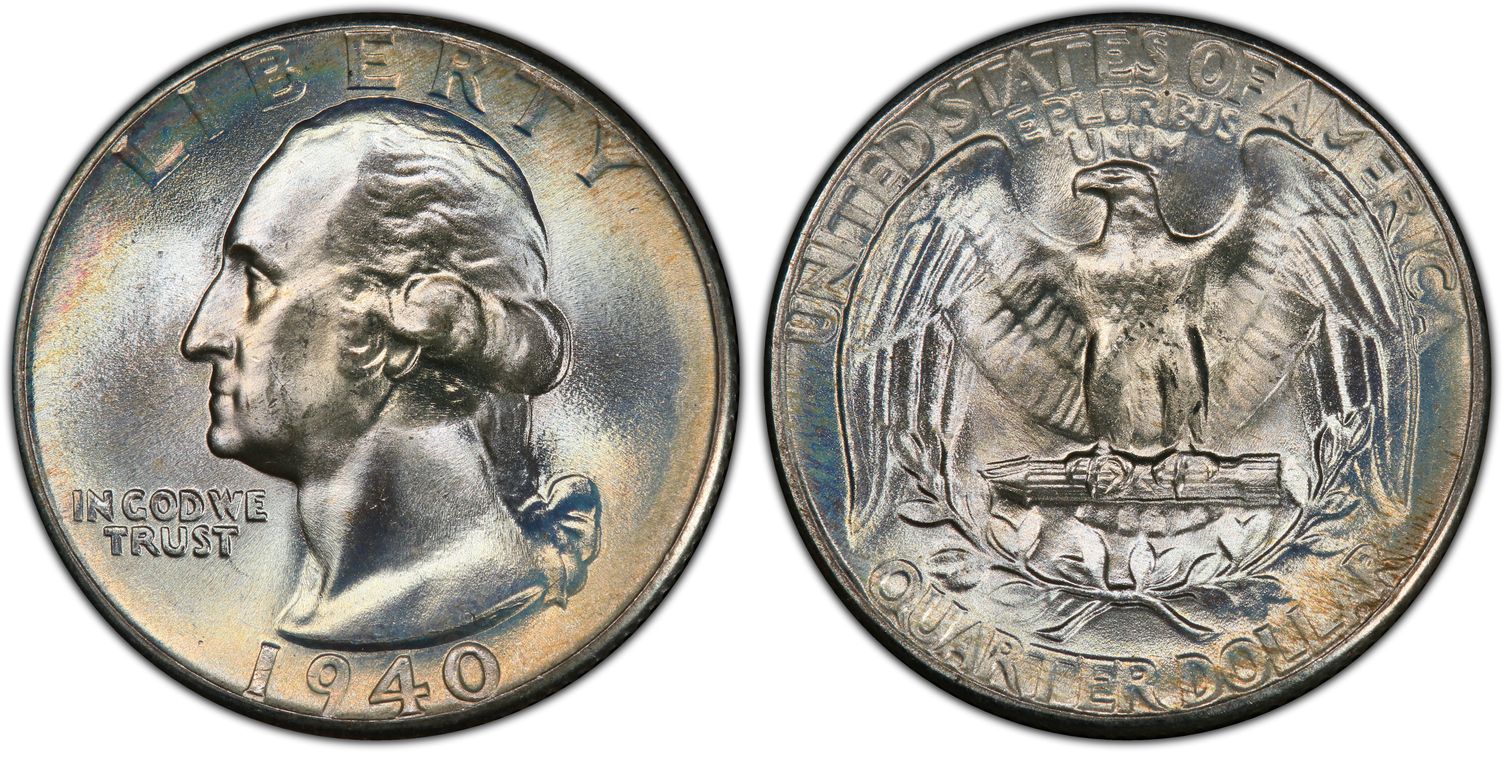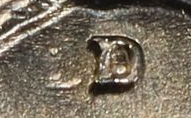1940 Washington Quarter Values, Errors, and Rarities
A mint state example of a 1940 Washington quarter is worth at least $20, and often sells for over $100. The very highest grades of this coin can easily sell for five figures.
Regardless of its condition, the silver melt value of a 1940 quarter is about $5 at the time of writing, based on the current silver spot price. That's a lot more than its face value of a quarter dollar (25 cents)! In fact, this is true of every silver quarter (those minted before 1965) based on its silver weight.
1940 Washington Quarter. Graded MS68 by PCGS
1940 Washington Quarter Prices
The Washington quarter design debuted in 1932, replacing the Standing Liberty quarter with a portrait of George Washington. It was produced at the Philadelphia Mint, San Francisco Mint, and Denver Mint in 1940.
The most valuable coins are uncirculated ones that earn the highest “Mint State” ratings from certified coin grading services. Mint State coins (aka uncirculated coins) are graded from MS60 to MS70.
1940 Washington Quarter Value
MINTAGE: 35,704,000
1940-D Washington Quarter Value
MINTAGE: 2,797,600
1940-S Washington Quarter Value
MINTAGE:8,244,000
Most Expensive 1940 Washington Quarters: Finest Known and Auction Records
This is a list of the finest-known examples of each 1940 Washington Quarter mintage. The auction records listed may or may not reflect the highest price ever paid since person-to-person private sales are not recorded.
The numbers in the PCGS and NGC entries are the number of coins at that grade that each service has graded.
1940 QUARTER VALUE
AUCTION RECORD: $19,975 for MS-68 CAC (2013, Heritage)
FINEST KNOWN: MS-68 (7, PCGS); MS-68 (5, NGC)
1940-D QUARTER VALUE
AUCTION RECORD: $17,500 for MS-68 (2022, eBay)
FINEST KNOWN: MS-67+ (21, PCGS); MS-68 (1, NGC)
1940-S QUARTER VALUE
AUCTION RECORD: $10,200 for MS-68 (2021, Stack’s Bowers)
FINEST KNOWN: MS-68 (2, PCGS); MS-68 (2, NGC)
DID YOU KNOW?
Coins are graded on a 70-point scale, where 1 is so worn as to be almost unidentifiable, and 70 is perfect, with no damage or blemishes visible even under magnification.
1940 Washington Quarter Varieties
Variety coins are coins that have had something happen to the die before the coin is struck. Common coin varieties include Doubled Die on Reverse (DDR), Doubled Die on Obverse (DDO), and Repunched Mint Mark (RPM.) The difference between variety coins and error coins is that variety coins result from a mistake on the coin die. Many hundreds or even thousands of variety coins with the same defect can be minted before the mistake is noticed.
There are two major varieties of the 1940 Washington Quarter, both from the Denver Mint: The 1940-D DDO and the 1940-D/D repunched mint mark.
1940-D DDO Washington Quarter
Blank coin dies need multiple strikes from the master die to fully impress the design onto the die. The 1940-D DDO Washington Quarter (Doubled Die on Obverse) is a quarter where the obverse die moved slightly between strikes by the master die.
The die doubling on the 1940-D DDO is most prominent on the motto “In God We Trust” on the lower left of the coin.
1940-D Doubled Die Obverse Washington Quarter. Graded MS66 by PCGS
Detail showing the die doubling in the motto “In God We Trust” on the 1940-D DDO Quarter.
AUCTION RECORD: $2,880 for MS-66 (2018 - Heritage)
1940-D/D Washington Quarter
Mint marks on US coin dies were punched by hand at the United States Mint until 1989! The 1940-D/D Washington Quarter repunched mint mark could almost be called a triple-punched mint mark. The detail photo below shows where the “D” hand die jumped completely off the intended mark and then had to be repunched over the original one to hide damage.

1940-D/D repunched mint mark detail (left) can be compared under magnification to a properly punched 1940-D mint mark.
AUCTION RECORD: $2,585 for MS-66 (2015 - Heritage)
More About Error Coins
Error coins are a result of a mechanical malfunction of the coin press or a defect or mistake in the coin blank itself. (Anything that happens to them after they are ejected from the coining press is referred to as “post-mint damage.”) This means that each error coin is unique, even if they were subjected to the same type of malfunction.
Common error coins are
Read more about collecting coins and coin values from Gainesville Coins' experts:
Collector Resources for Understanding the Hobby of Collecting Coins
Rare State Quarters Worth Money: Check Your Pocket Change!
Booker T. Washington Half Dollar Values
1909 VDB Penny Value, Errors, and Varieties
1905 Indian Head Penny Values, Errors, and Rarities
2009 Lincoln Penny Bicentennial Cents: Value, Errors, and Designs

Steven Cochran
A published writer, Steven's coverage of precious metals goes beyond the daily news to explain how ancillary factors affect the market.
Steven specializes in market analysis with an emphasis on stocks, corporate bonds, and government debt.
